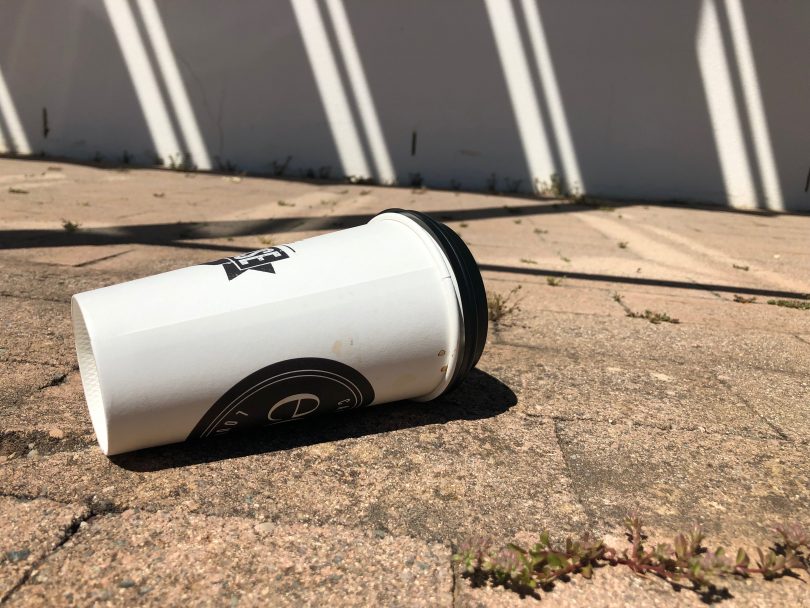
The ACT Greens have tabled a Bill to have a fairer system for the payment of fines for offences such as littering. Photo: File.
People who receive a fine for simple offences such as not picking up after your dog, riding public transport without paying, or littering will be offered hardship payment options if the ACT Greens get a Bill to pass in the ACT Legislative Assembly.
ACT Greens MLA Caroline Le Couteur tabled the Bill in the Assembly last Wednesday (27 November), the second last day of sitting for the year.
The Bill seeks to provide Canberrans with more payment options for infringement notices for simple offences where a fine can be issued and paid in lieu of going to court.
This excludes road traffic and parking offences, as these are dealt with in separate legislation.
If the Bill is supported, Canberrans who receive notices for simple offences could apply to:
- pay their fine in instalments, rather than all at once
- participate in approved community work or a social development plan in lieu of a fine
- have an infringement penalty waived if the nature of the offence and the circumstances justify such a waiver (for example, if someone had forgotten to tap on prior to boarding the light rail and this was their first offence).
The Bill is similar to the previous work of Greens MLA Amanda Bresnan in 2012 when the ACT Government created a scheme to better enable people to pay off parking and traffic infringements, including through community work orders.
Ms Le Couteur said the measures ensured that the consequences were proportionate to the offence.
“If you’re someone who’s living on social security and you get a fine, it could mean that you can’t eat for a couple of weeks,” Ms Le Couteur said.
“The level of fines for people on Newstart are equal to about all their weekly income, so we think there needs to be a fairer system that recognises the circumstances of people and not just the thing they are being fined for.
“By implementing a ‘fairer fines’ system, we can avoid entrenching poverty in our city, while enforcing our laws and still changing behaviour.”
Between 1 July 2017 and October this year, 303 infringements that fell within the jurisdiction of Transport Canberra and City Services were not paid. Of these, 300 were related to offences under the Domestic Animals Act 2000. The other three were under the Litter Act 2004 and were cancelled after being reviewed, and replaced with formal warning notices.
“Unfortunately it is not clear why these fines are not being paid; however, it is fair to assume that in many cases it is because people cannot pay them,” Ms Le Couteur said.
“In not paying, they risk prosecution. For those people on low incomes who do pay a fine, this will almost certainly mean sacrificing spending on something else.”
Part of the arrangements includes financial counselling, which the CEO of Care Financial Counselling Service, Carmel Franklin, said was a great alternative for people who could not afford to pay their fines.
“The vast majority of people who get fines are able to pay them and do pay them, but a small minority don’t pay them because they can’t, and what often happens is that these are people who are already in vulnerable situations,” Ms Franklin said.
“They’ve already got a lot of other things happening in their lives, so to have a system that potentially exacerbates that financial stress is not a good system,” Ms Franklin said.
Ms Le Couteur said the Greens had long fought to have a fairer fines system in the ACT, and were hopeful the Bill would be passed when the Assembly sits again next year.
“I’m never confident of anything in the Assembly. However, I’m very hopeful that given the government has acknowledged this system has worked really well for traffic and parking offences, it’s a logical extension,” she said.












